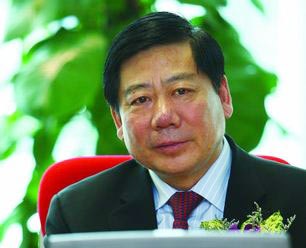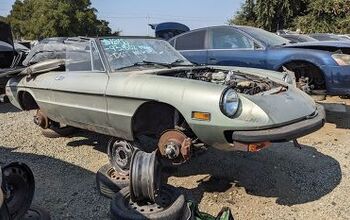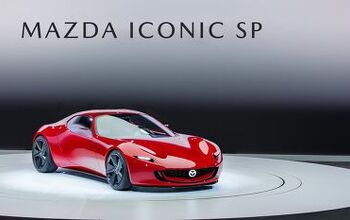Pangda CEO About Saab: We Will Take Over the Importation From 2012 Onwards."

For people with a sober mind, for people who do not suffer from a Stockholm Syndrome where hostages express empathy and have positive feelings towards their captors, the shotgun marriage between Saab and Chinese car distributor Pangda left many questions open. What was related through Spyker channels did not sound like business the way it is done in China.
Pangda’s CEO and founder Pang Qing Hua talked about his plans for Saab in an interview with the Chinese website, Auto Sohu. ChinaCarTimes supplied the translation into English, you can read the full version here.
What you will read will make much more sense than the breathless announcements by Victor Muller.
The interview answers some questions we had asked all along, for instance the question of the miraculous arrival of €30 million by last Tuesday. Pang Qing Hua explains:
“On Monday we signed a contract, on Tuesday we were preparing to send them 30 million Euros, and now it has already been sent. Saab has promised to restart production within the week and we will go and visit them to carry out inspections.”
So the money isn’t in the account. The check is in the mail. That makes more sense, even if it sounds awfully hurried. Sensibly, the interviewer asks:
“When dealing with overseas companies, most Chinese companies will undergo multiple rounds of inspections and checks on their proposed partner, but it appears that Pangda has not yet done this and has paid 30 million Euros before carrying out an inspection. Is this not a dangerous game, what will happen if there is something that does not meet Pangda’s expectations?”
Pang Qing Hua answers:
“As soon the deal was signed we sent them 30 million Euros, Spyker promised to restart production in 7 days, as soon as this starts, Pangda will create a team to carry out checks. The board of directors will create a framework of cooperation. If we hear from our team that Saab has kept up to its promises we will put forward a proposal to the NDRC (National Development and Reform Council) for approval. As soon as we receive approval, we will start to looking for a partner, or the NDRC will recommend one to us. The next round of investment for this project relies on the report from our team, if it is not up to expectations then Pangda has the right to terminate further investment plans.”
Pangda has cleared $ 1 billion in a stock offering. With that kind of cash, putting €30 million at risk is an affordable – if still hazardous – gamble.
Sohu touches on another question that had been largely overlooked: Saab has an import contract with China Automobile Trading Company (CATC). Pang Qing Hua’s comment:
“When we signed with Saab we also thought about this issue, CATC signed a deal with Saab for three year distribution rights, we have good relations with CATC, Im good friends with their General Manager, but business is business. The deal that Saab and CATC signed can be cancelled at the end of this year, we will take over the importation from 2012 onwards.”
Meaning: It will be a while until Pangda imports boatloads of Saabs to China. It will even be longer until there will be Saab production in China. In that regard, Pangda is in no great hurry. Pang Qing Hua explains why:
“Until now, Pangda has not thought about this problem. We need to wait for the report from our new team and when the NDRC has given approval, we will then search for a partner factory. Our standard for a partner is basically , whoever understands Saab, whoever is proactive in making Saab vehicles work for China, then we will choose them. So on this issue, we really need to wait for that preliminary report from our team before we can think about this issue. One other thing regarding the choosing of a partner, in the contract we have with Saab it states that Pangda has the right to choose and to suggest a partner. Saab has the right to refuse a partner, but Saab has no right to choose a partner, to put it basically if any Chinese company wants to produce Saabs in China, they have to go through Pangda.”
As far as Chinese production is concerned, Pangda has Saab by the shorties. That alone might be worth the €30 million gamble to Pang Qing Hua.
Just one more thing, to paraphrase Columbo: Pang Qing Hua thinks he has a “contract” whereas Muller thinks he has a “Memorandum of Understanding.” I case you are not familiar with the nuances, a contract equals a marriage, a MoU is like a “I love you, would you want to be my wife?” There is no translation error, the Chinese text of the interview talks of a “contract”. The clauses Pang Qing Hua cites also typically are in a contract and are rarely found in a MoU.

Bertel Schmitt comes back to journalism after taking a 35 year break in advertising and marketing. He ran and owned advertising agencies in Duesseldorf, Germany, and New York City. Volkswagen A.G. was Bertel's most important corporate account. Schmitt's advertising and marketing career touched many corners of the industry with a special focus on automotive products and services. Since 2004, he lives in Japan and China with his wife <a href="http://www.tomokoandbertel.com"> Tomoko </a>. Bertel Schmitt is a founding board member of the <a href="http://www.offshoresuperseries.com"> Offshore Super Series </a>, an American offshore powerboat racing organization. He is co-owner of the racing team Typhoon.
More by Bertel Schmitt
Latest Car Reviews
Read moreLatest Product Reviews
Read moreRecent Comments
- Jkross22 When I think about products that I buy that are of the highest quality or are of great value, I have no idea if they are made as a whole or in parts by unionized employees. As a customer, that's really all I care about. When I think about services I receive from unionized and non-unionized employees, it varies from C- to F levels of service. Will unionizing make the cars better or worse?
- Namesakeone I think it's the age old conundrum: Every company (or industry) wants every other one to pay its workers well; well-paid workers make great customers. But nobody wants to pay their own workers well; that would eat into profits. So instead of what Henry Ford (the first) did over a century ago, we will have a lot of companies copying Nike in the 1980s: third-world employees (with a few highly-paid celebrity athlete endorsers) selling overpriced products to upper-middle-class Americans (with a few urban street youths willing to literally kill for that product), until there are no more upper-middle-class Americans left.
- ToolGuy I was challenged by Tim's incisive opinion, but thankfully Jeff's multiple vanilla truisms have set me straight. Or something. 😉
- ChristianWimmer The body kit modifications ruined it for me.
- ToolGuy "I have my stance -- I won't prejudice the commentariat by sharing it."• Like Tim, I have my opinion and it is perfect and above reproach (as long as I keep it to myself). I would hate to share it with the world and risk having someone critique it. LOL.


































Comments
Join the conversation
Please sell the Saab logo to the Chinese now, and stop the prolonged Saab death agony!
Pretty sure it's a contract when you want 30 million euros wired ASAP.